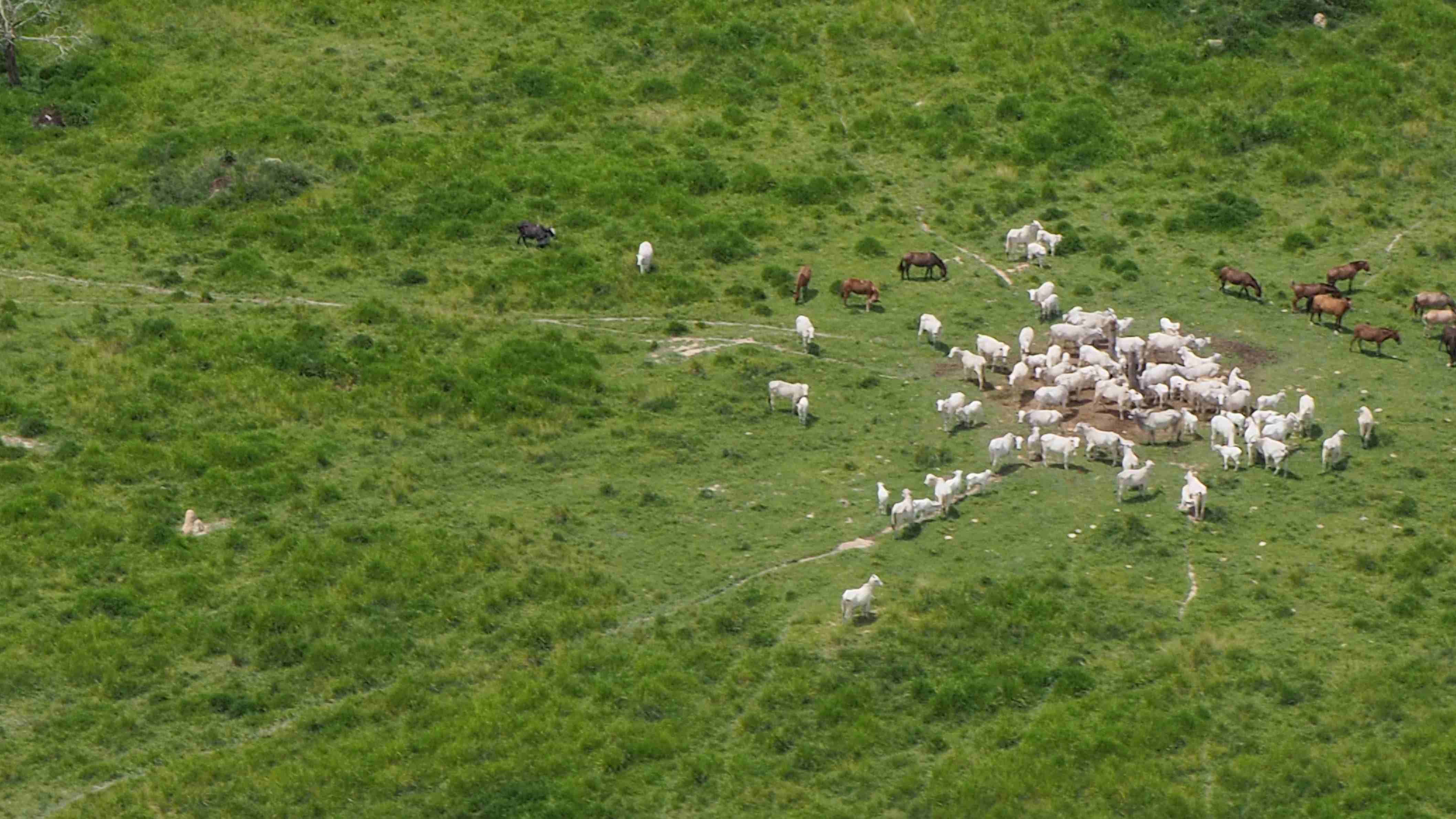
Whether it is a meatpacker or a supermarket chain, any company that buys cattle or meat in the Amazon ends up buying animals raised in deforested areas, according to Prosecutor Daniel Azeredo from the Federal Prosecution Service of the State of Pará (MPF-PA). On Tuesday (12), he presented the results of monitoring carried out since 2009 on the state’s meat supply chain.
Over the past ten years, 31 slaughterhouses have signed Conduct Adjustment Terms (TACs) with the Federal Prosecution Service (MPF) – known as the “Meat TACs” – to monitor the origin of slaughtered animals and thus curb illegal deforestation.
Livestock is the major cause of deforestation in the area, according to the MPF. From 2000 to 2010, the bovine cattle herd in the so-called Legal Amazon region went from 47 million to 78 million. In the same period, the Amazon forest lost 240 thousand square kilometers of its coverage – an area equivalent to the state of São Paulo.
“No company that buys cattle from the Amazon, no supermarket or retailer can be sure that nothing is coming from deforestation in its production activity”, Azeredo says. “There are serious problems that audits do not even reach.”
Audit Gaps
Three barriers prevent total control of the meat supply chain in Pará, according to Azeredo. The first barrier is tracking animals from birth, which is not easy as they pass through various farms until they get to slaughter.
“Cattle are sold from farm to farm until they reach meatpacking companies, and halfway they pass through areas with environmental problems. This is not detected by audits because the origin of cattle is not traced. The companies only know which farm is selling at that time”, he says.
The second problem is fraud in the Rural Environmental Registry (CAR), an area statement provided by farmers themselves, but easily tampered with. According to Azeredo, some producers change the limits of their properties in their CAR statement to remove an area where deforestation was found. “And then the producer keeps selling cattle”, he says.
The last loophole in the meat supply chain is “cattle washing”, that is, when animals reared in deforested areas are transferred to properties with “clean records”, which eventually end up selling them to slaughterhouses.
Such irregularities were found in 6.3% of animals slaughtered in Pará in 2017, according to the audit released on Tuesday. Of the 3.3 million cattle slaughtered in the state that year, 2.2 million were inspected by the prosecutors. There were irregularities with 137,000.
This was the second audit performed by the agency. In the first one, using data from 2016, the irregularity rate was 22%. “Ten years ago, there was no control mechanism. We have made a lot of progress”, says attorney Ricardo Negrini, also from MPF-PA. In addition to illegal deforestation, the audit points to issues such as lack of CAR or expired rural environmental licenses.
Of the 31 slaughterhouses that signed the Meat TAC, 23 presented the audit results, including large companies such as JBS, Minerva and Frigol – with irregularity rates of 9%, 1% and 19% respectively. On the other hand, eight companies did not conduct any monitoring, including Marfrig.
‘Suspicious’ Productivity
One way to improve control of the meat supply chain is to link the Animal Transit Guide (GTA) to the Rural Environmental Registry, says Azeredo.
The prosecutor also said that from 2020 on he will demand that slaughterhouses provide their suppliers’ productivity rates. The idea is to curb the activities of cattle ranchers who raise cattle in numbers that are incompatible with the size of their properties.
To stop the “cattle washing”, the MPF has set a productivity ceiling of 2.5 animals per hectare. Properties that exceed this limit should be closely monitored by meatpacking companies, as this may indicate irregularities such as CAR fraud or cattle ranching in illegal areas. Companies will have to prove high productivity and set rules for these purchases. “Anyone who does not meet the ceiling in the next audit will be irregular”, Azeredo says.
No Fines
As in 2018, the Prosecution Service decided not to impose fines on companies that failed to comply with the Meat TAC. Prosecutor Ricardo Negrini stated that the TAC is not intended as a punitive measure; it rather aims to make ranchers understand the benefits of producing without devastating the forest. According to him, consumer markets are becoming increasingly aware, as are supermarkets and financial institutions.
“Financial institutions that provide credit to the meat sector are beginning to worry about supply chain sustainability. When one of these actors decides not to buy cattle due to social and environmental problems, suppliers will face economic problems that harm them more than any fine”, he says.
He also points out difficulties in collecting the fines imposed on companies “because they don’t always have assets enough” or because “the company shuts down”, he says. “There are a lot of obstacles in the traditional judicial system, so we seek to solve it through actions based on the market itself.”
However, the choice of not applying fines is controversial. “Imposing fines would increase the pressure on meatpackers for adapting faster to the TAC”, says Mariana Abreu, a researcher with NGO Global Witness. For her, the priority is to solve the problems of indirect suppliers, CAR faking and cattle washing.
Abreu also argues that large banks restrict lending to companies involved in deforestation. She says that Financial institutions such as Black Rock, Deutsche Bank and Bank of America fund major meatpackers such as JBS and Minerva, and should demand more regulation and sustainability. “This is crucial if we want to stop the destruction of the Amazon”, she said.

